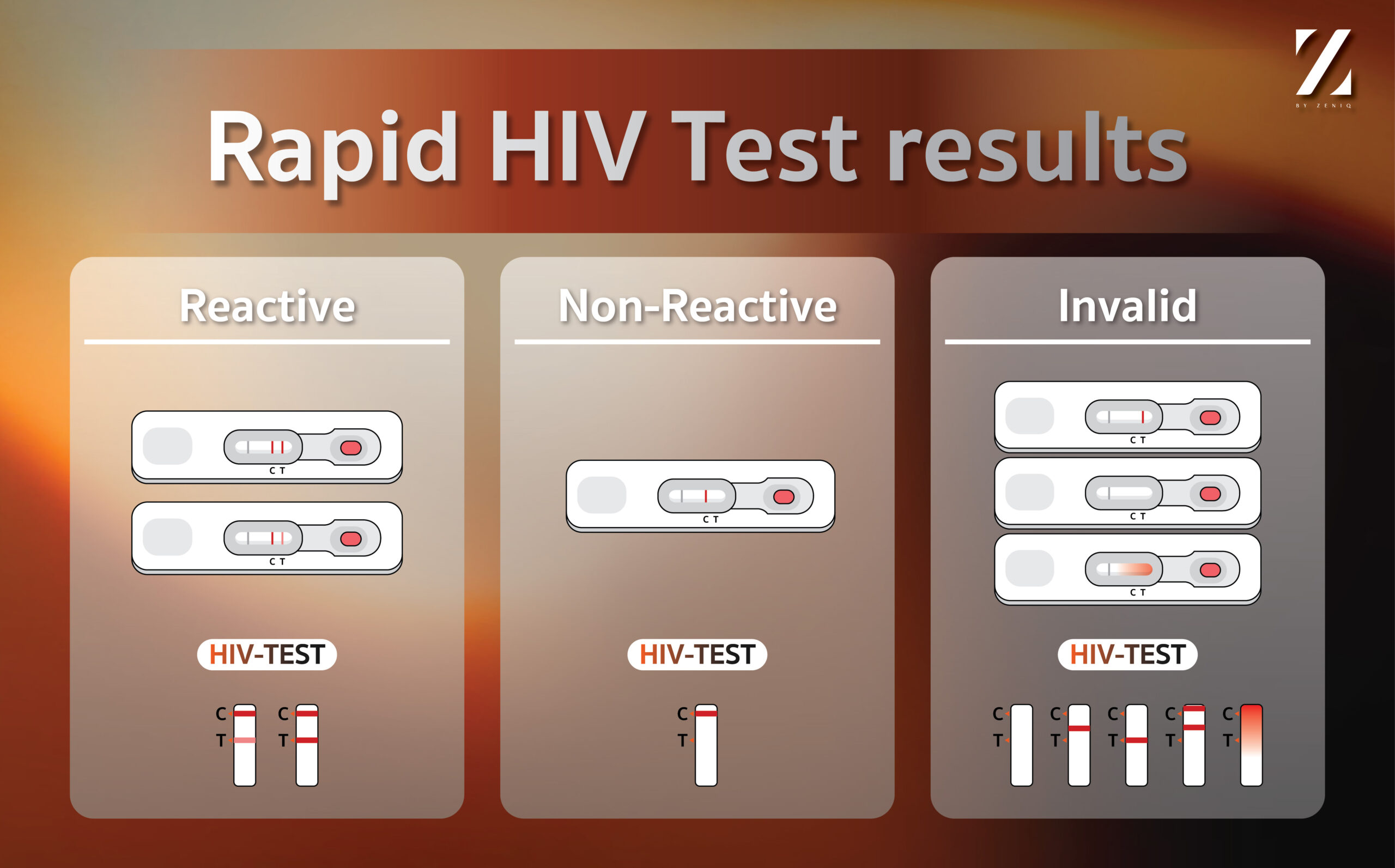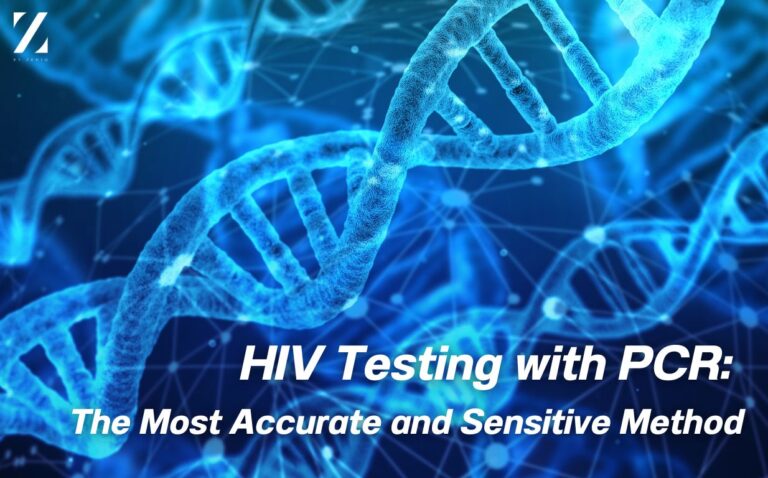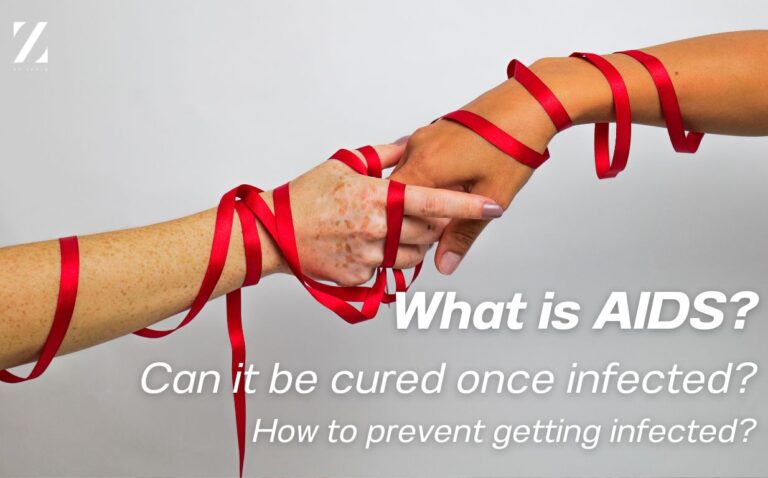Getting an HIV screening can be a stressful experience for some individuals. In the past, waiting for results, which could take days, often caused significant anxiety. However, thanks to advancements in testing technologies, we now have options that provide results in as little as 20 minutes. These rapid tests are highly accurate, with nearly 100% sensitivity when performed at the appropriate time, offering both speed and reliability to ease concerns and promote timely care.
What is a Rapid HIV Test?
A Rapid HIV Test is a screening method to assess the risk of HIV infection by detecting HIV antibodies or in some cases as a combination of both antigens and antibodies. Results are available within just 20 minutes.
Why Get Tested for HIV?
In the early stages, HIV often does not show noticeable symptoms. Testing helps doctors diagnose early, allowing for treatment before the disease progresses to a more severe stage. Early detection increases the chances of better management. Additionally, knowing your HIV status helps prevent the virus from spreading to others.
Who is a Rapid HIV Test Suitable For?
The Rapid HIV Test is an ideal option for individuals at high risk of HIV infection or those who are concerned about their sexual health. It is particularly recommended for the following groups:
- Those who have had unprotected sex, whether with multiple partners or with a partner whose HIV status is unknown. Not using condoms is a significant risk factor.
- Individuals with frequent partner changes, as having new partners without protection increases the risk of infection.
- Those with a history of sexually transmitted infections (STIs), such as gonorrhea, syphilis, or genital warts, are at higher risk of contracting HIV.
- Pregnant women, as HIV testing helps prevent transmission to the fetus and allows for proper treatment planning.
- People who use injectable drugs and share needles, which is a very high-risk factor for HIV transmission.
- Healthcare professionals, especially those who handle blood or bodily fluids from patients.
- Victims of sexual assault, as non-consensual exposure can pose a risk for HIV infection.
Advantages and Disadvantages of a Rapid HIV Test
Advantages
Rapid HIV Tests are popular due to their convenience, speed, and accessibility. Rapid HIV Test with results available in just 20 minutes, allowing individuals to quickly make informed decisions about their next steps.
The test is usually painless or minimally invasive, requiring only a small blood sample from a fingertip or a saliva sample.
Disadvantages
While Rapid HIV Tests are convenient and fast, they do have limitations. The results serve only as a preliminary screening. If the test is positive, further testing with more accurate methods is necessary to confirm the diagnosis, as false positives can occur.
Additionally, testing during the window period—the time between infection and the development of detectable antibodies—can result in a false-negative. This could lead to a misunderstanding of one’s health status if the virus has not yet produced enough antibodies to be detected.
The ability of a test to detect an HIV infection largely depends on the generation of the test used. To learn more about the different generations of HIV tests, click here -> link to the article I wrote about HIV Testing Generation
When Should You Get a Rapid HIV Test After a Risky Encounter?
After potential exposure to HIV, testing is recommended 2-4 weeks later. This is the period during which the body starts producing enough antibodies to fight the virus, making the test more accurate. A doctor may also recommend retesting at a later date to confirm the results.
Understanding Rapid HIV Test Results
There are three main possible outcomes for a Rapid HIV Test:
- Non-Reactive (Negative): This means that, at the time of the test, no HIV antibodies were detected in your body. However, a negative result does not always guarantee that you are HIV-free, as the virus may be in the window period. Follow-up testing may be recommended by a doctor.
- Reactive (Positive): This indicates the presence of HIV antibodies. A confirmatory test will be needed to verify the result and begin appropriate medical advice and treatment.
- Invalid: This means the test result is unclear or inconclusive. In this case, a retest is necessary to obtain a definitive result.
What to Do if the Test is Positive
If a positive result is confirmed, your attending doctor will conduct a thorough physical examination, order additional blood tests, and possibly perform further x-ray imaging. The attending doctor will provide guidance and develop a personalized treatment plan.
Modern treatments allow individuals with HIV to live a normal life. Consistent use of antiretroviral medications helps stop the progression of the virus, prevents complications, and reduces the risk of transmission.
Conclusion
The Rapid HIV Test is a fast and convenient way to check for HIV, delivering results in just 20 minutes using a blood sample from a fingertip or saliva from a gum swab. It is especially suitable for high-risk groups, such as those who have unprotected sex, pregnant women, or individuals who share needles.
At Z by Zeniq, we offer Rapid HIV Testing as part of our services. If you’re concerned about your sexual health or need more information, feel free to schedule an appointment with us.




